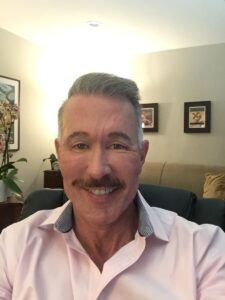 Gay Men and Life Lessons We Can Learn from Actors
Gay Men and Life Lessons We Can Learn from Actors
As a gay men’s specialist psychotherapist and coach in Los Angeles, or, more specifically, West Hollywood, the influence of the television and film entertainment industry is everywhere. Not all, but a good percentage of my clients are somehow affiliated with it. It permeates the air kind of like LA’s night-blooming jasmine.
For this time of year, now February, it’s Oscar season, with the Academy Awards telecast only a few weeks away, the afternoon and evening when you see black stretch limousines all over the streets of LA, between stars and crew and executives going to the awards venue, or back out to various after-parties to see and be seen. It’s a lot of marketing for films, actors, directors, designers, and studios, and of course a very important historical tradition in the film industry. We might watch the Oscars telecast and root (even bet on!) our favorite actors to win, or even admire (or diss!) what they are wearing on the red carpet arrivals. It’s a larger-than-life world of glamour and imagination that celebrates the art (and commerce) of film.
They say that actors are America’s royalty. They are exalted for their talent, beauty, and skills to bring characters from the two-dimensional, written page to life on the movie or television screens. In the “man and superman” myth, they are the “superman.” They are visible and familiar, and represent publicly ideas that are often very private, such as when an actor brings visibility and awareness to a certain disease or circumstance. They are symbols of the types of people we see in everyday life, and some fantasy characters. Acting is one of the more friendly professions for gay men, especially historically on the Broadway stage, but also in film and television, if perhaps historically most often closeted. I try to derive inspiration and a certain kind of motivational energy from many different kinds of sources, and try to apply them to my own life but also consider how they benefit gay men as a group.
I was thinking: what does acting and actors mean for gay men? Not just in LA/West Hollywood, but in general. What can we learn from actors that might be good tips to consider to live by? They might be inspiring us without really being aware of it.
While an acting teacher will preach about bringing “truth” and “authenticity” to a performance to make it seem natural, realistic, and compelling, emotionally moving us, they are portraying a character: they are not the character they play. They are, for creative purposes, creating a False Self.
Gay men know all about the False Self. Most of us have had to cultivate quite a skilled False Self during our formative years, knowing that we had to generally accommodate a heterosexist or homophobic society. Even when we perhaps didn’t realize we were gay, most of us knew there was something “different” about us from most of our peers as boys, and we knew that “something” needed to be kept hidden. We knew that much.
Gay men, so to speak, are the original “actors,” but we do it full time in life, unless and until we reach the age (if we ever do) of coming out. Then we can live our truth authentically, which can feel like an enormous burden has been lifted off of us.
This is not unlike an actor who drops the character he’s playing once a director calls, “Cut!” on a movie set, or an actor makes his exit off a stage. When the character is not seen, and speaking/reacting, the actor portraying that character emerges. Their voice, their posture, their demeanor, their speech, their whole countenance might change, that’s different from the character they’re playing.
Gay men can be like this. We might play the character of either being “quiet” in some situations, like at work, or we might even “butch it up” in some situations. Fortunately, this idea of being closeted or cultivating the False Self for a sense of survival or some kind of social advantage (like competing with straight men at work) has been diminished in recent years, with more kids, teens, and certainly adults being “out” from a younger age as social acceptance of gay men has made progress, if perhaps still not enough to keep gay men safe in every aspect of society, everywhere. Gay men used to take more heat than lesbians, let’s say, and I’d say lately that while the “heat” has been taken off gay men to some degree, trans people have come under alarmingly more oppression, as the proposed (or enacted!) political legislation of 2022 and 2023 has shown, in so many states. Horrible new “false outrage” about “drag queen story hour” and attempts to ban it from shrill, ignorant, hatefully bigoted parents, or banning the use of public restrooms or locker rooms according to one’s gender identity, or banning trans kids from participating in sports as they full-time gender identity. These kinds of scare-tactic laws and rhetoric easily fuel the violence against and even murder of trans people (especially trans women) worldwide.
But gay men still face oppression. The “don’t say gay” laws in Florida (and soon to be aggressively replicated elsewhere) have been some of the newest and most alarming recent developments, used for political leveraging for “conservative” voters, from people like Florida Governor Ron DeSantis, quite possibly the leading Republican candidate in 2024 for President, just behind the virulently anti-LGBT Trump, who appointed probably the most specifically vocal homophobic cabinet in history, as well as anti-LGBT Supreme Court justices. The need for the False Self certainly persists as an actual or social/professional “role” for survival of many gay men falling under these oppressive circumstances.
Existential
Gay men can also learn from actors in an existential way. Shakespeare said, “All the world’s a stage, and all the men and women merely players.” Just like actors embody characters that a writer has created from imagination, we develop our own “characters” based on our genetics, body composition, ethnicity, culture, Family of Origin, historical age, skills, talents, interests, values, and expression of our personal style. The gay iconic roles of the “gym bunny,” the “leather daddy,” the “twink” (at least temporarily), the “bear,” the “drag queen,” the “old queen,” “the DILF,” etc. are all, in part, roles that we cultivate voluntarily through our interests, hobbies, clothing, hair styles, and comfort of presentation – not unlike actors in costume.
Gay men as actors are also, in a sense, producers, responsible for creating the world of the play, or movie, or TV show. Think of the costumes we wear to work, to the gym, to the club, to the beach, to brunch, etc. All of those places (and of course the less stereotypical ones, I realize) are our “sets” where the action takes place. Our belongings are our props, whether it’s our car, home décor, kitchen supplies, sports equipment, work equipment (mostly laptops, it seems), and all that we touch (our smart phones) and use throughout a day or week.
Gay men’s communication is really just “knowing our lines.” Like actors, what do we say to move toward our objective, fulfill our motivations, evoke reactions, or negotiate our circumstances? What we say can evoke the reactions or concessions we want.
 Resilience
Resilience
When I work with actors here in Los Angeles/West Hollywood, the main thing I have to support them on regarding their career is simply resilience. It takes a lot of it to handle the constant rejection of either not being called in to read for a part, or reading and not getting the part, either through in-person or submitting an audition tape. Actors generally try for many roles before they get a booking; it’s like playing a slot machine: it might pay out a little, a lot, frequently, or infrequently, but if you want to play at slots, those are the rules of the game to be expected.
One coping strategy is just to make rejection”OK.” If we’re trying to hook up and no one seems to be interested, keep trying. If we’re trying to date, and we are disappointed by something that goes wrong, keep dating. If you aren’t where you are in your career, keep working and strategizing (I do a lot of career coaching in my work.) If your body isn’t what you want it to be, part of that is practicing Radical Self-Acceptance and part of that is to keep exercising in a way that works for you.
For gay men, we have to face resilience if we face any kind of anti-LGBT+ discrimination, or even just “mainstream” stresses and hardships. When things get really tough, I say, “The only way out, is through.” We have to stick with it. As an older gay man now, I have found this idea to be one of my favorites. Your goals can take a long time — longer than we really want — and can cost more in time, energy, and money than we had originally estimated or certainly wanted them to, but they do tend to be achieved eventually, with a lot of persistence.
 Sex
Sex
Gay men can learn a whole lot from actors about sex. Since we usually don’t learn about sex from direct live observation, we often learn about sex and observe “how it’s done” from porn. While AASECT Certified Sex Therapists (like myself) like to remind everyone, “Porn is entertainment, not education,” there are some things we learn from porn actors. All the animal kingdom, including Man, can learn from observation of others, even though our natural instincts would generally take over, to some degree, without porn “demonstrating” for us.
Certainly, gay men’s sex roles as “Top” or “Bottom” are roles we play, not unlike actors. In my individual therapy, couples therapy, sex therapy, and individual/relationship coaching services, I sometimes educate guys on how they can overcome sexual anxieties, fears, ambitions, shame, or complications to have a better sex life. A term I help guys with a lot is the whole thing about “performance anxiety,” which might lead to certain kinds of erectile dysfunction or delayed ejaculation, or other sex therapy troubleshooting topics.
Previous articles (or podcast episodes) have discussed overcoming fears of being a “Top” or “Bottom” in sex. We can be somewhat “apart” from our regular selves in sex, playing a specifically erotic role, as most people do in sex. Sex is not really an intellectual thing; it’s really a part of our very physical, even animalistic selves, even though it can include sophisticated feelings like love, attachment, and profound communication.
For gay men, adopting the mind-set of the Top in sex can evoke our more dominant, assertive, leadership, controlling, even overpowering selves, in the context of consent and the Six Principles of Sexual Health (also discussed in earlier articles and podcast episodes). Adopting the mind-set of the Bottom is similar, but in a different way, evoking our more passive, submissive, acquiescent selves in a dynamic power-play of erotic energy, where the fun is in the sharing and complementary/contrast of the energies toward this very playful, erotically satisfying purpose.
If we are “Versatile” or “Sides,” different aspects of our “sexual character” might be evoked, but we still might find ourselves saying or doing things that feel like we are playing a role, but not in a seriously false or artificial way, but in a creative, erotic way.
Sometimes being Dominant in sex can be like what actors call the special fun of a playing a villain role; it can be a very safe, sanctioned, consensual way to manage our aggressive feelings that are part of all of us, exploring what Jung called “the shadow” of the psyche. Being submissive in sex can be a welcome respite for guys who have stressful jobs where they are constantly supervising, observing, guiding, directing, coaching, and controlling the operations of a business. Giving up their control (sometimes exaggerated through bondage play) can be like a vacation from always having to be “on” and responsible for so much going on around them.
 Professional
Professional
Certainly, while most of us are not actually actors in the entertainment business, we refer to our work, still, as “work performance,” such as on an annual review. Are we meeting or exceeding the expectations of the “role” we have in the organization?
Politicians are on the national or global “stage” of political and social operations.
We might feel the need to be socially “on,” such as polite, charming, interactive, energetic, and attentive, as if we were “on” stage, and enjoy sometimes just being home alone and relaxing, not having to be “on” and being “off” in a more relaxed state.
Interpersonal
All actors have interactions with the other actors/characters in a work, just like people have a series of lifelong interpersonal relationships, in so many different settings and circumstances. For gay men, our interpersonal relationships can be especially important, because positive interpersonal relationships can be a buffer for the otherwise social “minority stress” that we endure as a generally, worldwide, stigmatized or even oppressed group. We find “safety” in our friends. The euphemism for gay men as being “Friends of Dorothy” refers to the colorful characters (Scarecrow, Tin Man, Lion) who support Dorothy in her journey in “The Wizard of Oz,” which was originally a book, but more popularly on stage and certainly the classic 1939 film. Just like Dorothy’s friends, we find kindred spirits (sometimes our fellow gay men, but sometimes a supportive parent, a favorite teacher, a fun aunt/uncle, sibling, or possibly a boss, coach or mentor). It is our interpersonal relationships that help us to feel like we’re not alone, and that help is there for us (such as the “It Gets Better” campaign to support LGBT+ youth).
There is a saying, “there is no drama without conflict,” as the dramatic conflicts in movies or TV shows drive the story, especially in comedy (think of Dorothy and her ex-husband, Stan, on “The Golden Girls,” or Endora and Darrin on “Bewitched,” or so many others). And, for gay men, sometimes we tolerate (or even thrive) on “gay drama” in our interpersonal relationships, with jealousies, insecurities, criticisms, envy, anxieties, competition, etc., which many therapists and theorists hypothesize that this negativity in gay men’s interpersonal relationships is an internalization of the oppression we take from outside the community; it’s like a negative ball that has been thrown into our community from the outside, and we toss it around to each other, instead of tossing the ball back out where it came from, back at them.
 Tell The Story
Tell The Story
Biography books (many about actors) tell the story of these interesting lives. But we all have interesting lives, even if no one ever writes a biography of us. Actors tell the story that a writer has imagined, with some kind of meaning, purpose, or lesson.
Gay men as “actors” tell our own story about what it’s like to be a gender/sexual minority at our own time in history, which is different from where we were, and different again from who we will be in the future. A character in the Broadway musical, “Ragtime,” Coalhouse Walker, sings a song called, “Make Them Hear You,” as his challenge to those who come after him to fight for justice when he’s no longer around to do it. That’s our job as gay men. We tell the story, but in a way that works for us as our own “character” in that story.
The lyrics include:
Go out and tell our story
Let it echo far and wide
Make them hear you
Make them hear you
How Justice was our battle
And how Justice was denied
Make them hear you
Make them hear you
And say to those who blame us
For the way we chose to fight,
That sometimes there are battles
That are more than black or white
And I could not put down my sword
When Justice was my right
Make them hear you
(c. Lynn Ahrens/Stephen Charles Flaherty, “Ragtime”)
How can you, with the “character” you play on this world stage, “make them hear you?”
We get one voice, one chance, to make our mark. The best actors can make a “cameo” brief performance in a work and leave an indelible impression. Remember the Wicked Witch of the West in “The Wizard of Oz,” so powerfully played by character actress Margaret Hamilton, who left an iconic impression on so many, for so long? That was only twelve minutes of screen time. Twelve minutes, and yet look at the influence. Of course, our lives are usually much, much longer. What kind of indelible impression can each of us make on the story?
When we see our favorite actors, there are many things to admire: their face, voice, body, mannerisms, movement, passions, expression, and ways they inspire us by what they say and do. But it’s not a one-way street; even as non-famous people, our face, voice, body, mannerisms, movement, passions, and expressions can inspire others, too. We get one chance: when the curtain comes down, or when the credits roll, the actor’s story (at least for now) is over; for gay men in life, it’s, well, life.
The best acting performances are the most authentic. They move us. One of the most important teachings from acting coaches all over Hollywood and New York is about “being” the character, in truth, authenticity, and motivating desire that informs all of our choices and actions. Let your life be about this: be you. You don’t “find yourself” in life, you create yourself. This is important for gay men, whose sense of self is so often diminished from the widespread oppressions we face in countries all over the world. As adults, no matter how oppressed we were as kids, or the crap we face currently, we must be empowered to be ourselves, in all settings and for all purposes.
Be you, as only you can play it. Go out and tell our story: make them hear you.
If you would like to “be heard” from someone who supports you, consider therapy (for those in California) or coaching (nationally and worldwide). For more information on services, call/text 310-339-5778, or email Ken@GayTherapyLA.com. Would be happy to help!

Ken Howard, LCSW, CST, is the great-nephew of character actress Esther Howard, who starred on Broadway all through the 1920’s and then in over 110 films in Hollywood from 1930-1952. Ken has been a gay men’s specialist psychotherapist for over 30 years. He is a Licensed Clinical Social Worker in California, AASECT Certified Sex Therapist, Life/Career/Relationship Coach, academic, activist, and LGBTQ+ advocate. He also offers speaking engagements, and expert witness services on LGBT and HIV/AIDS issues. He is a Certified Psychiatric Social Worker, and has an additional Certification in Consensual Non-Monogamy and Polyamorous Relationships from the Sexual Health Alliance. He has been successfully living with HIV/AIDS since 1990. He lives in West Hollywood, California with his husband and dog.


